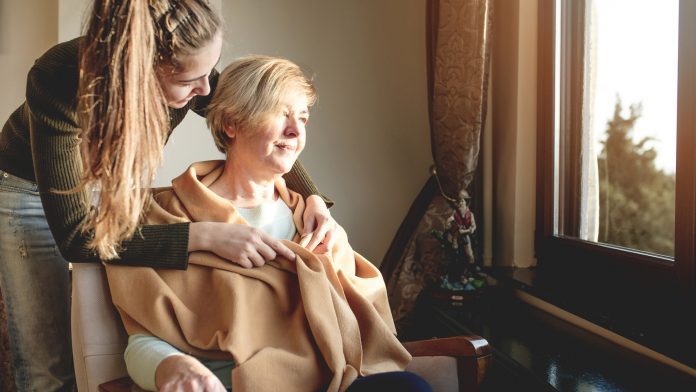
Results from an extensive cross-national study have shockingly revealed that three in ten young carers in the UK think about self-harming.
Findings from the Me-We Young Carers project, an extensive pan-European study of 2,100 adolescent carers in the Netherlands, Slovenia, Sweden, Switzerland, the UK, and 5,000 non-carers of the same age, has illustrated the dire landscape of the health and wellbeing of young carers. The investigation, which included people aged 15 to 17 with caring responsibilities for a family member or friend, revealed that 30% consider self-harming and more than 10% contemplate harming others in the UK.
The study’s results signifies the urgent requirement for more support to alleviate the pressures experienced by young carers approaching adulthood. Despite some evidence that a number of individuals benefit from the experience, a substantial amount demonstrated signs of poor wellbeing and distress, with girls discovered to be most at risk.
The research is published in the International Journal of Care and Caring.
The extent of self-harming in the UK
When the entire sample of adolescent carers was asked if they had thought about self-harming because of caring, 14% said they had, with this figure being twice as high in the UK (28%). Currently, the percentage of UK adolescents who are actively self-harming is between 13% and 19%.
6% of the entire study sample, and 12% of those in the UK, stated that they had considered hurting someone else because of caring, with 45% revealing that the other person was who they were caring for. Although the findings do not suggest that these young carers are a threat to others, they do highlight the constant pressure and isolation that young carers face daily.
Additionally, further findings suggest that many are struggling to cope – 36% across all six countries, and 56% in the UK, said their mental health had deteriorated because of their care duties. 17% of the entire study, and 37% in the UK, confirmed that their school performance had been impacted, with 36% of those in the UK admitting that they have been bullied about caring.
Furthermore, a significant amount of the results for the UK carers were significantly worse than the six-country average. Although, this may be due to the UK sample comprising a disproportionate number of young carers with extremely demanding responsibilities, it demonstrates the prevalence of mental health problems among UK adolescents.
Professor Saul Becker, from the Faculty of Education, University of Cambridge, who is part of the project team, said: “A significant number of young adolescent carers are experiencing real difficulty, isolation, and distress. The results do not mean they would actually hurt someone, but it is clear they sometimes feel desperate. That can manifest itself in various ways: they may get into trouble at school, think about hurting themselves, or feel as though they want to lash out.”
Andy McGowan, head of engagement at Caring Together, which supports carers in the East of England, said: “At this age, their caring responsibilities often grow. They then have to balance those commitments with challenges that affect all adolescents: college work, applying for university, or trying to get a job. The pressure builds and builds. A substantial number feel absolutely at the end of their tether and as if there’s no ‘off’ switch; no way out.”
Improving support for young carers
The total number of young carers in the UK is unclear; however, a 2011 census revealed that at least 178,000 people aged five to 17 had caring responsibilities, with 83,500 of these within the 15 to 17 age bracket. Nevertheless, these reports are believed to significantly undercount the extent of caring among children and adolescents, with BBC data suggesting that the total number of carers aged five to 17 is closer to 800,000, with 334,000 of these aged 15 to 17.
Of those surveyed in the new study, 69% cared for a family member, 16% cared for more than one relative and 22% for both a family member and a friend. Most cared for parents, although, in Italy 59% cared for grandparents, indicating that young people support shortfalls in elderly care in some countries.
Overall, the more extensive the caring responsibilities were, the more likely the young carer was to consider self-harming, with girls reporting lower wellbeing more than boys. In a standard test in which a score of 50 represents ‘extremely high wellbeing’ and adolescent non-carers scored an average of 37, female carers in the UK averaged just 29.
Becker stated that although some carers reported that they received some support, this should be treated with caution.
He commented: “What they are getting varies in quality and quantity, and often there is very little evidence it is having an effect. It is no great surprise that a significant proportion who do get some help are still in distress.”
The report suggests that more support needs to be provided beyond the currently available services to stop young carers from self-harming. The team explained that the goal should be a ‘No Wrong Door’ system that combines health, social care, and other services, in which any trusted adult a young carer turns to can provide or ensure they receive the necessary help.
“Young carers are less likely to approach social services, but they might feel they can talk to a teacher, their GP, or someone outside the school,” Becker said. “We need a system in which every agency that touches on their lives is working together on this.”
McGowan concluded: “The challenges young adolescent carers experience are very specific and individualised. They might be educational or employment-related or problems with transport, finance, or housing. Young carer services can only do so much about that; other services need to be on board as well. As it stands, the available support for managing their transition into adulthood is patchy at best.”
























